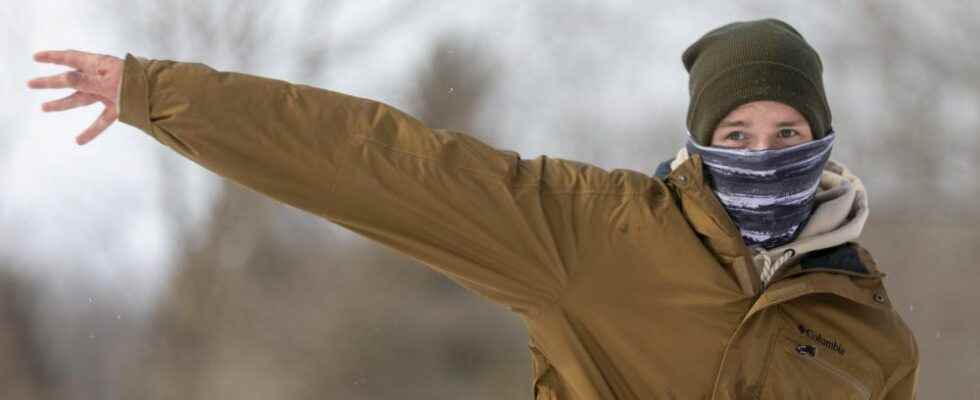
Warm weather during the last few weeks, which saw temperatures swing to highs of 12 C, may appear to be sign of the times, but meteorologist Gerald Cheng from Environment Canada and Climate Change says temperatures are heading back to normal for the time being.
Early November was particularly warm, with temperatures more than 14 degrees above normal, setting records across the province.
But the mild weather was interrupted by a four days of lake effect snow from Nov.17-20. In some areas, temperatures fell to as much as 9 degrees below normal, according to Environment Canada.
In the end, provincewide, November ended up being only a few degrees above normal. In London, it worked out to be 1.5 degrees warmer.
“We were in a milder stretch, that is indeed true,” said Cheng. “But when I look at the forecast in the London area, it’s not that far from normal right now.”
The forecast Friday and Saturday is a high of 2 C, he said, so “it’s actually a seasonal stretch of weather.”
-

Winter is nearing, but it may not quite feel like it all weekend
-

London’s COVID test center expands scope to ease ER flu, cold crush
Last year, Dec. 11 reached a high of 16 C and Dec. 16, 15 C, he said.
While it’s a little too early to make a prognosis about snow on Christmas Day, data from past years suggest there is a 48 per cent chance.
As far as winter weather, there is some likelihood – 40 to 50 per cent chance — that December, January and February will be warmer than normal.
“Keep in mind there is a lot of fluctuations in temperatures,” he said. “There could be some dips and rises.”
James Voogt, a Western geography and environment professor and expert on urban climate, said Environment Canada reports by 30 year averages, and they update them every 10 years.
“So, over a longer period of time they change,” he said. “The likelihood of seeing warmer than normal events keeps growing with time. There is a good chance that the weather on any particular day will be above what you expect for that day.
Across Southern Canada average temperatures have risen at least one degree during the last 150 years, he said.
“I think what we have to start putting in our general understanding these days is, it’s not the normal of 100 years ago. . . due to large scale climate change.”
Some experts believe climate change will redirect the jet stream, causing havoc to weather patterns, he said.
“That could lead to longer periods of the same kind of weather relative to the past,” he said. “A period of good weather in the summer that could lead to drought – or in the winter – you get a series of precipitation events one after another.”
Michael McKay, executive director of the Great Lakes Institute for Environmental Research at the University of Windsor, said the longer the Great Lakes stay ice free, the more they lose their moderating effect on temperatures, instead producing much more lake effect snow, and the waves can exacerbate erosion of the coastline, particularly on Lake Erie.
During the past 10 or 15 years, mild winters, increasingly frequent, means lower levels of ice, he said.
“Low ice cover is not good. Ice cover is really important to the Great Lakes,” he said. “It also protects the eggs of some fish species that spawn in the fall and overwinter.”
Lake Erie, being the shallowest of the Great Lakes, is the one that’s going to lose heat the fastest, he said.
Ice is also a cultural identifier for Canadians, he said, adding many communities rely on income from ice fishing.
